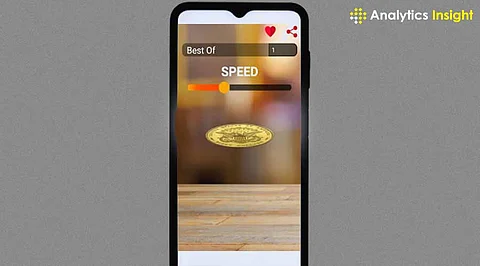Google Coin Flip: Your Go-To Digital Decision-Maker
In a technologically dominated world, even the most ordinary things have been assigned a digital counterpart. Coin flipping, a traditional method of resolving issues, has been redefined in the form of Google Coin Flip, a digital decision-maker to assist in making quick decisions.
It can be accessed through a simple Google search, doing away with the need for a physical coin, and giving a new twist to an old practice. From deciding between dinner choices to resolving amicable arguments, this electronic decision-maker offers ease and expediency in just a few seconds.
A Contemporary Twist on an Old Idea
Coin flipping is an ancient idea that spans centuries, traditionally associated with chance-based decision making in many cultures. In the past, it was used as a fair arbiter when the choices were equally favorable, or no choice was particularly clear. Google Coin Flip continues this legacy by moving the physical action into the digital realm.
Entering ‘flip a coin’ in the search bar initiates the action of an animated coin spinning and then coming to rest either heads or tails. This simple process guarantees that anyone with access to the internet can take advantage of it, no other tools necessary.
Unlike its physical counterpart, the digital version offers instant results without the risk of losing a coin under the furniture. The animation creates a sense of interactivity, simulating tension in watching an actual coin fall through the air. As an answer to utilize for some consumers, it is a useful and fun tool, combining traditional memory with technological advancements.
How It Works: Simplicity at Its Core
Using Google Coin Flip is minimal effort. A user enters the phrase ‘flip a coin’ into the search box on Google, and the outcome is displayed at the top of the page. A spinning animated coin appears for a brief moment before revealing its result, heads or tails, accompanied by a soft sound effect.
In case the outcome is not satisfactory, a ‘flip again’ option allows multiple tries, satisfying individuals who desire best-of-three scenarios or those simply enjoying the process.
The design of the tool caters to maximum accessibility. It requires no downloading, apps, or expertise, only an internet-connected device. Its incorporation in Google's search interface guarantees reach across desktop, tablet, and smartphone platforms. This makes it a default first choice for snap decision-making while at home, in the workplace, or elsewhere.
Practical Applications in Everyday Life
Google Coin Flip excels when decisions appear balanced. Between two weekend excursions, movie genres, or first turns at a game, all are made easily with a coin toss in cyberspace. Its application lies not only within oneself but in the convenience for group use when fairness is concerned. Teachers may use it to divide tasks between students, friends can settle lighthearted arguments fairly, and so on.
Apart from convenience, the utility adds a bit of whimsy to routine situations. The surprise it offers simulates life's uncertainty, allowing for an instant reprieve from excessive ruminations over trifles. With a world often weighed down by intricate choices, this computerized coin flip introduces a healthy measure of plainness, reminding one that all decisions do not call for elaborate considerations.
Advantages Over Traditional Coin Flipping
When contrasted with the physical version, Google Coin Flip has several different advantages. At its core, access is the chief benefit: coins get lost or left behind, but laptops and smartphones don't. And this digital iteration completely obliterates worry regarding fairness of a coin; there's no debate of a biased or rigged throw because the results hinge on a code-written system engineered for randomness.
Also, the speed of the tool makes it more attractive. A manual flip may take several attempts if the coin doesn't fall properly, while the digital one always gives a clear reading. For those who are tech-savvy or already familiar with digital alternatives, this approach goes hand-in-hand with new habits, providing an elegant substitute for digging around in pockets.
Limitations and Considerations
While strong, Google Coin Flip is not perfect. Dependence on an internet connection is a barrier in regions with weak signal or during network outages. Though uncommon, technical issues may interrupt the experience, though Google's solid infrastructure reduces such occurrences. The software also does not have personalization, the user cannot select a specific coin design or adjust the parameters of the flip, taking away from its zing to an animation devoid of personality.
On critical choices, its randomness may not suffice. Important life decisions, such as career changes or investments, require careful consideration and not the opinion of a coin. But for frivolous or low-stakes situations, such limitations barely reduce the overall utility.
The Future of Digital Decision Tools
Google Coin Flip is a modest but symbolic move toward the future of decision-making tools. As interactive functionality and artificial intelligence develop further, future versions might include voice command or virtual assistant capability. Imagine being able to say, "Is dinner Italian or Chinese?" as well as getting an immediate coin flip through a smart speaker. This technology could elevate its purpose to a new level in everyday rituals.
So far, this program is a wonderful combination of heritage and technology. Its plainness is its global attraction, and its digitized element gives it the touch of the times. Whether or not it cracks a stalemate or turns fantasy into reality, Google Coin Flip is a testimony that even the smallest innovation makes life's tiny choices a cinch.
.png)

